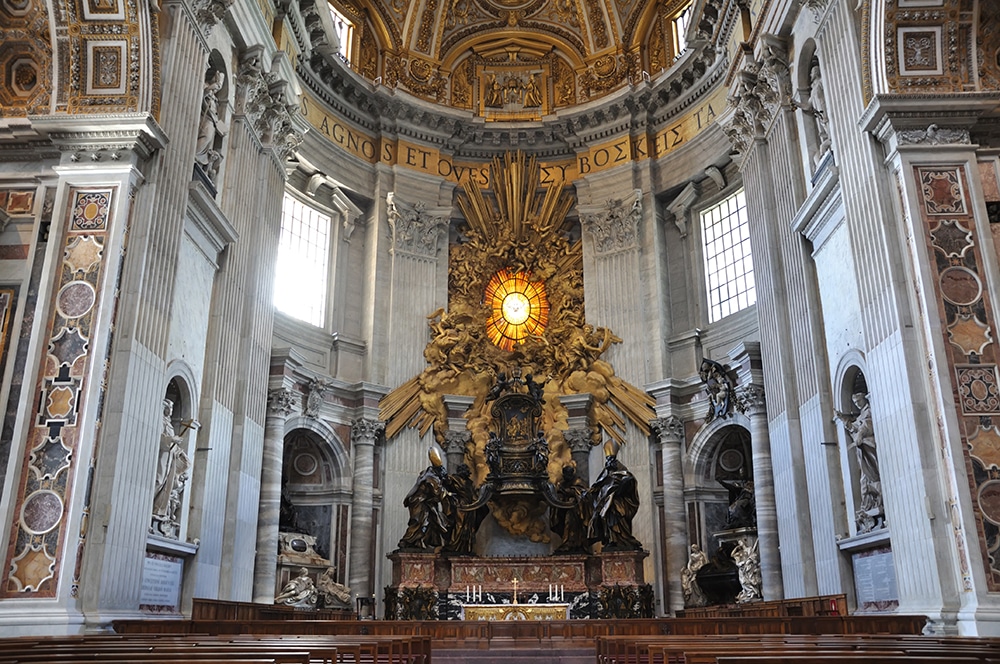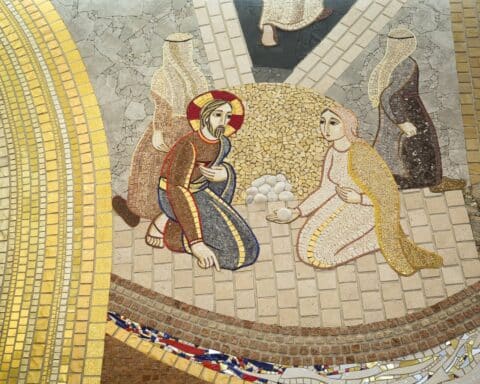“And so I say to you, you are Peter, and upon this rock I will build my church, and the gates of the netherworld shall not prevail against it.”
These words spoken by Jesus Christ to Simon Peter — on whose recognition of Jesus as “the Messiah, the Son of the living God” the conversation begins — have been borne out for 2,000 years, providing hope and consolation. In its history, the Church has faced persecution, heresy, wars, corruption, schism, reformation, revolution and indifference. Yet the Church remains — for Jesus also tells us: “where two or three are gathered together in my name, there am I in the midst of them.”
These are comforting reminders for today’s believers. A basic comprehension of Church history, as mentioned above, informs us that the Church has faced dark times before. But living through them is different from reading about them in the history books, especially when so much of the recent darkness involves our children.
Twenty years into the clergy abuse scandal — a scandal that has expanded over time in scope from the horrific criminal abuse of little ones and related cover-ups, to predatory behavior involving vulnerable adults, to general (and seemingly pervasive) sexual misconduct with adults — Catholics are exhausted. Time and again, this Editorial Board has called for truth, transparency and comprehensive reform. We continue to do so — and not just because we are worn out, but because without it, the Church’s credibility is dealt a severe blow and its vital mission to the world is seriously compromised. A hypocritical (or worse) Church is a Church that is largely of no use to anyone, for — as we know all too well — who will take it seriously? Furthermore, who are we evangelizing? The pull of the beautiful, the good and the true is strong, but so is the stink of the rot.
And so the devil is rejoicing. And why not? All manner of scandals have sidelined the Church at just the time when our culture is in desperate need of the Gospel. Now more than ever, the world needs the strong voice of the Church to advocate for the dignity of the human person, from conception to natural death; to work for the rights and protection of migrants and refugees; and to stand up against the attacks on marriage and the family. Hundreds of thousands of children are being aborted each year in this country alone, and government leaders now want taxpayers to fund those deaths. A large rise in migrants and asylum seekers from Central America continues to result in horrific conditions at the border, including for children, and longtime Dreamers constantly face the threat of deportation. Experts are telling schools and parents that young children need to have conversations about gender identity, and vocabulary is being invented to circumvent the most basic of all biological facts: that God created them male and female. The culture is dominating the conversation. This is not a time for the Church to be cowering in the shadows surrounded by the shards of its credibility.
What, then, does that mean for each of us outside — and even inside — the halls of power of the institutional Church? It means that we must continue to demand accountability, transparency and change of Church leadership — for only this type of work can root out the systemic cancer prevalent within the Church. It means we must support, with our words, actions and prayers our deacons, priests and bishops, including reminding them of their call to holiness by the witness of our lives. It also means we must join them in the vineyard, laboring to love our neighbors and to bring them to Christ. And, above all, it means personal transformation — continued conversion — for each one of us at every level of the Church.
Each of us is a sinner. But what sets faithful Christians apart is our response to Christ’s call to conversion and his command to “go and sin no more.” For, as St. Paul says to the Romans, “what profit did you get then from the things of which you are now ashamed? For the end of those things is death. But [once] you have been freed from sin and have become slaves of God, the benefit that you have leads to sanctification, and its end is eternal life.”
Our Sunday Visitor Editorial Board: Gretchen R. Crowe, Scott P. Richert, Scott Warden, York Young





